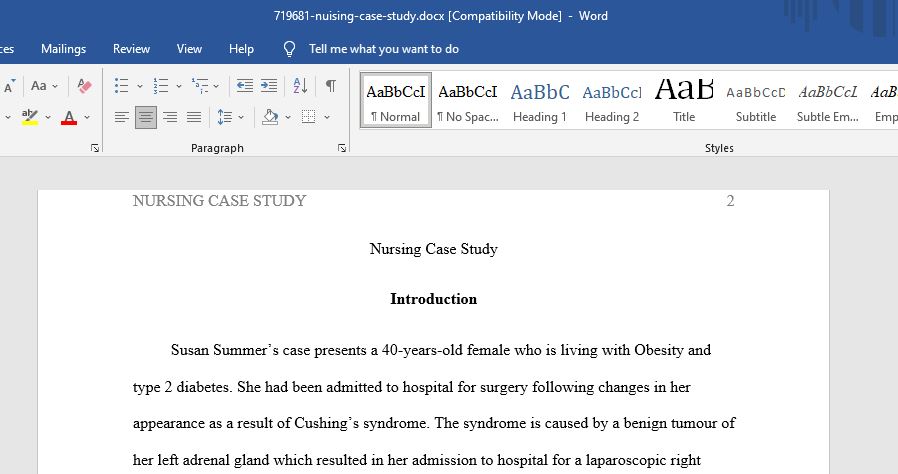Discuss the aetiology and pathophysiology of the patient’s presenting condition
Case Study 1: Susan Summers
HISTORY:
Susan Summers is a 40 year old female who has 3 children under the age of 10yrs. Susan has casual employment stacking shelves in a supermarket at night. Susan is obese at 90kg (BM I35kg/m2) and has been diagnosed with type 2 diabetes. Susan admits to drinking a bottle of wine or more per night after work to help her cope with her life. Susan was admitted to hospital for surgery following changes in her appearance due to Cushing’s syndrome caused by a benign tumour of her right adrenal gland. Susan is admitted to hospital for a laparoscopic right
adrenalectomy under general-anaesthesia. After 2 hours in the post-anaesthetic recovery room (PARU) and an uneventful recovery, Susan
was transferred to the ward, where you have been allocated to her care.
PRESENTATION TO THE WARD:
On return to the ward Susan’s observations are as follows:
• Respirations 30 breaths per minute
• BP 160/90mmHg
• Pulse 128bpm
• Temperature 35.0oC
• Pain score 0/10
• Indwelling urinary catheter (IDC) 5mls in the last hour
It is planned for Susan to be discharged after two days on the ward.
QUESTIONS TO BE ANSWERED
In relation to Susan Summers:
Q1. Discuss the aetiology and pathophysiology of the patient’s presenting condition (LO3)
Q2. Critically discuss the underlying pathophysiology of the patient’s post-operative deterioration. Prioritize, outline and justify the appropriate nursing management of the patient during this time (LO1; LO2; LO3; LO5: LO6)
Q3. Identify three (3) members of the interdisciplinary healthcare team, apart from the primary medical and nursing team, who you would involve in the care of the patient before their discharge and provide justification for their involvement. (LO1; LO4: LO5; LO6)
Answer preview:

Words: 1,653
